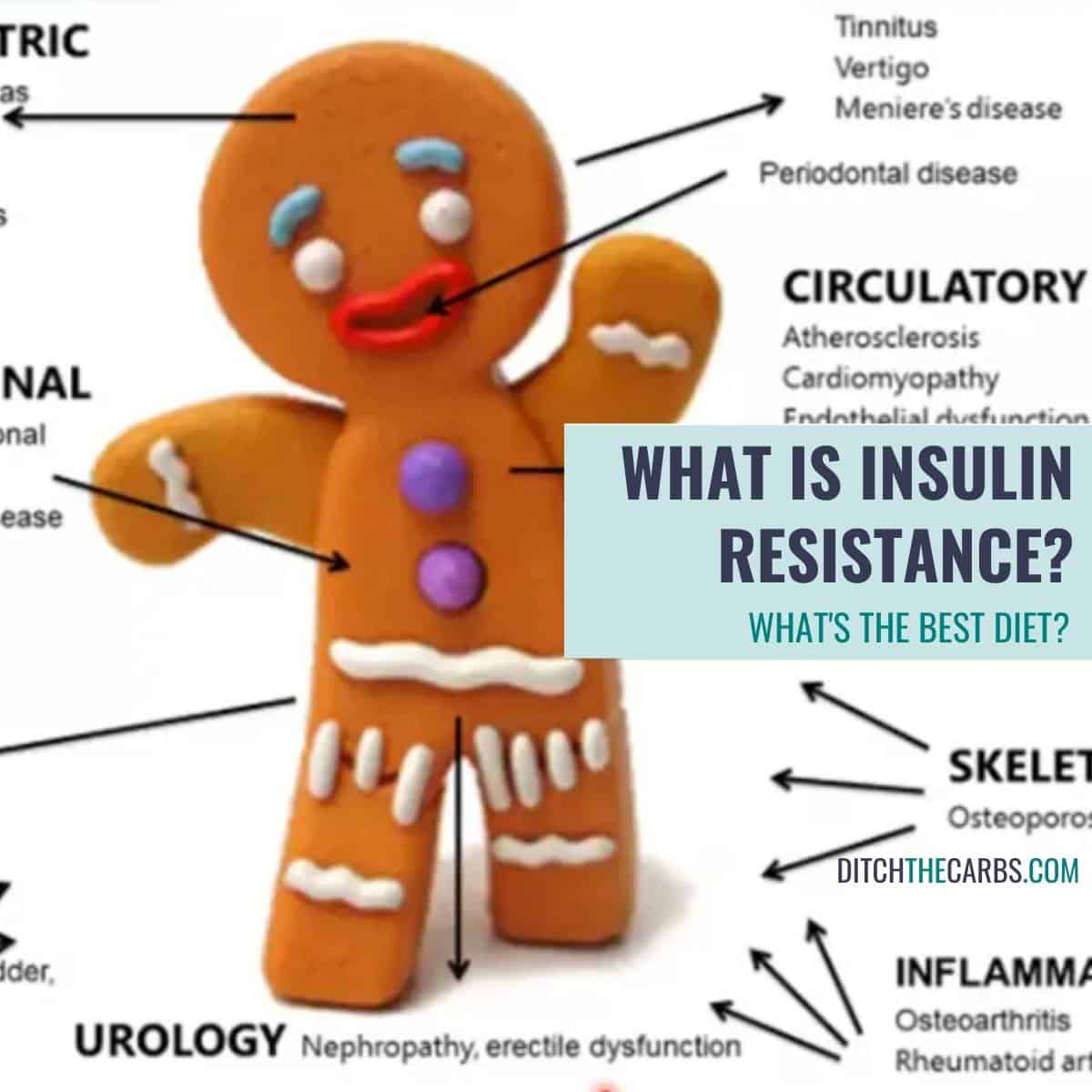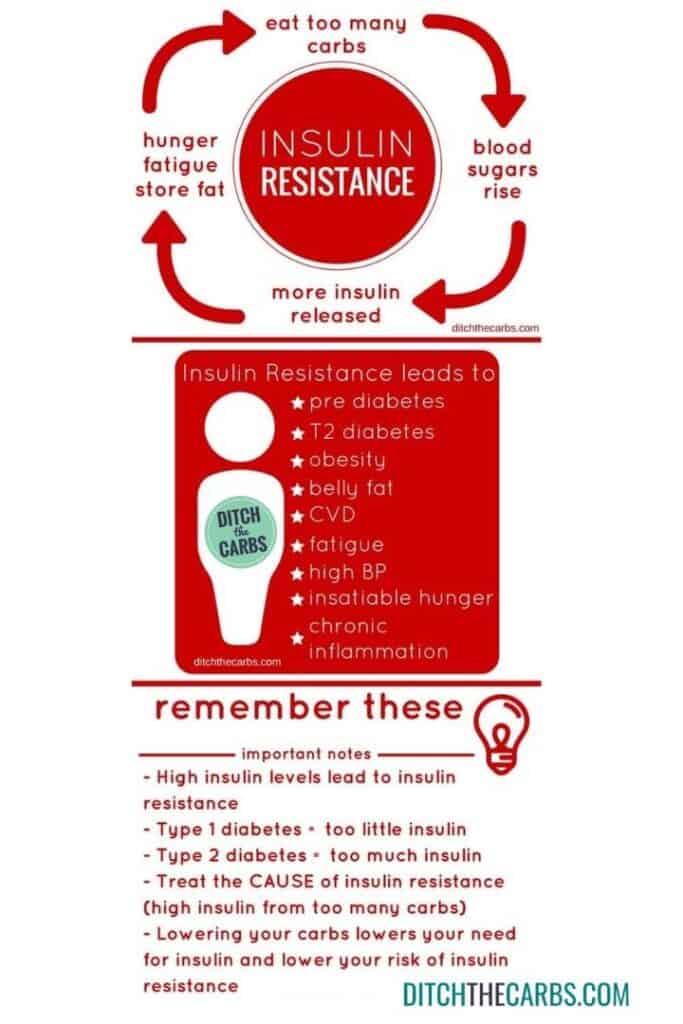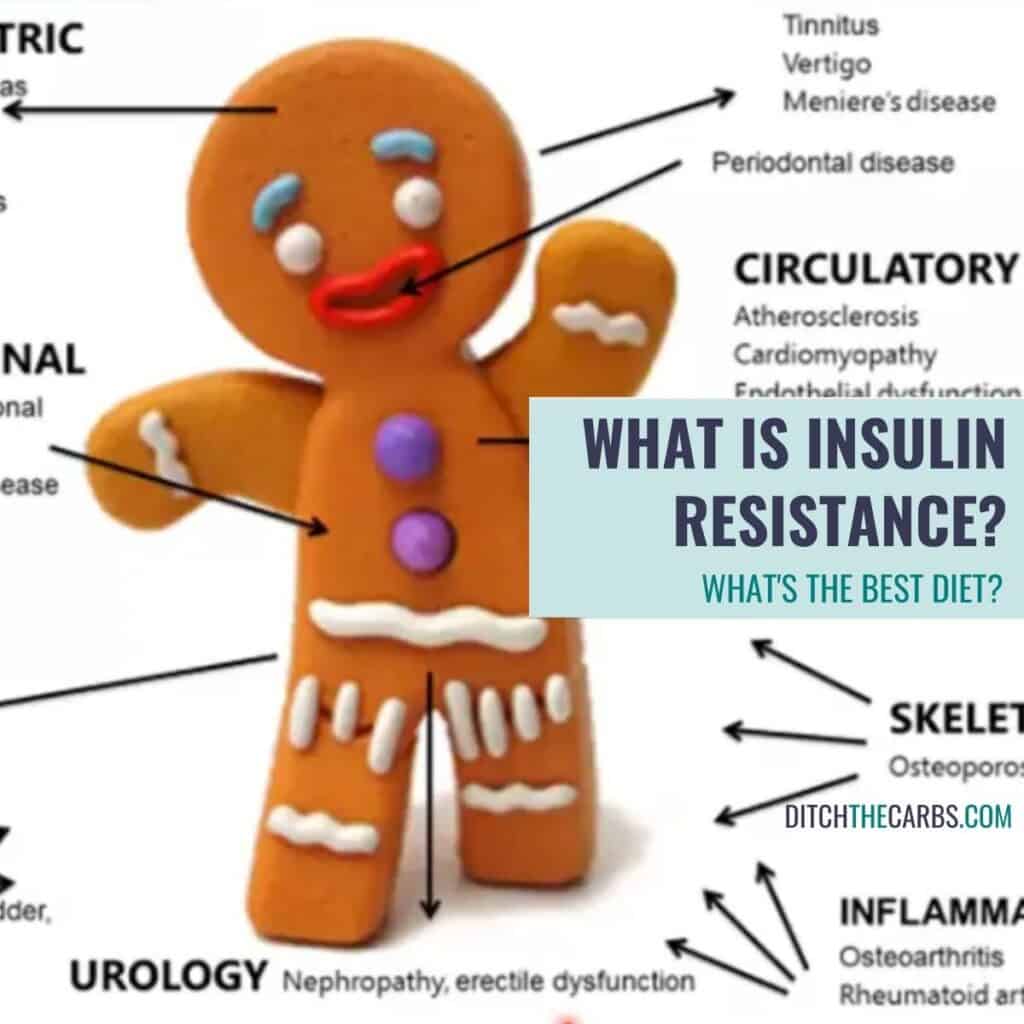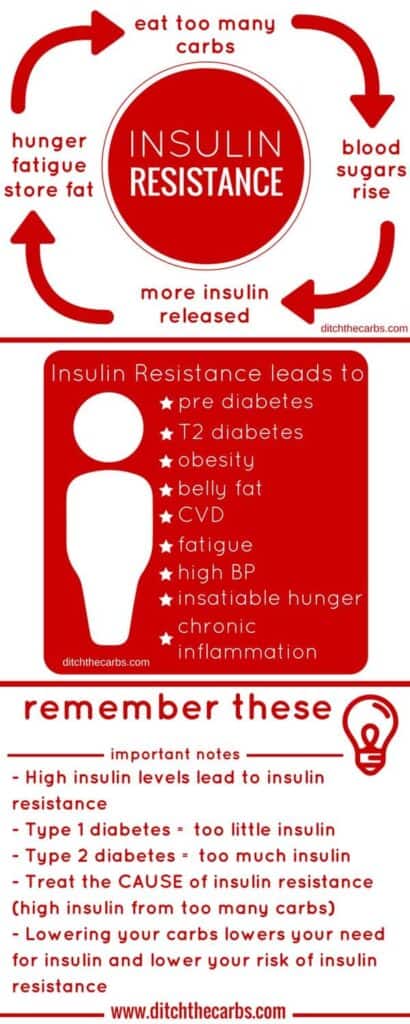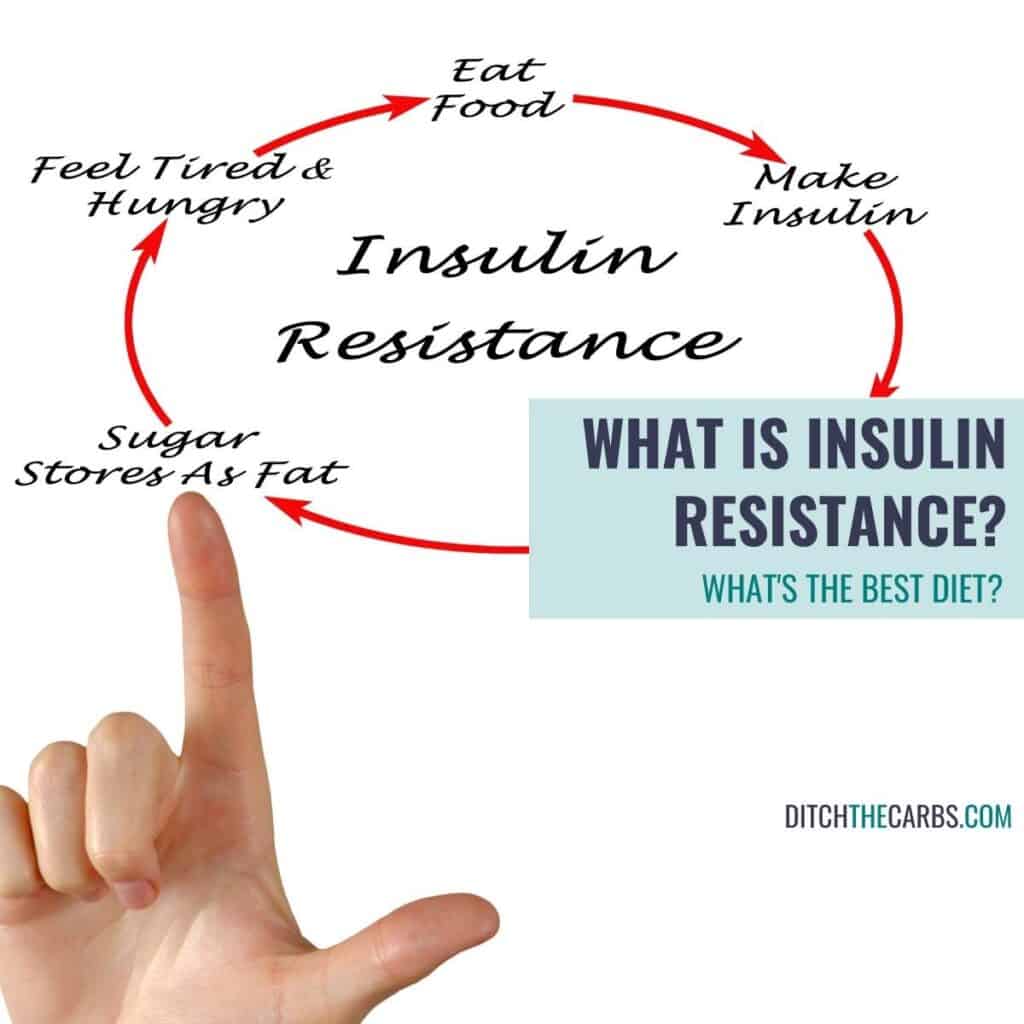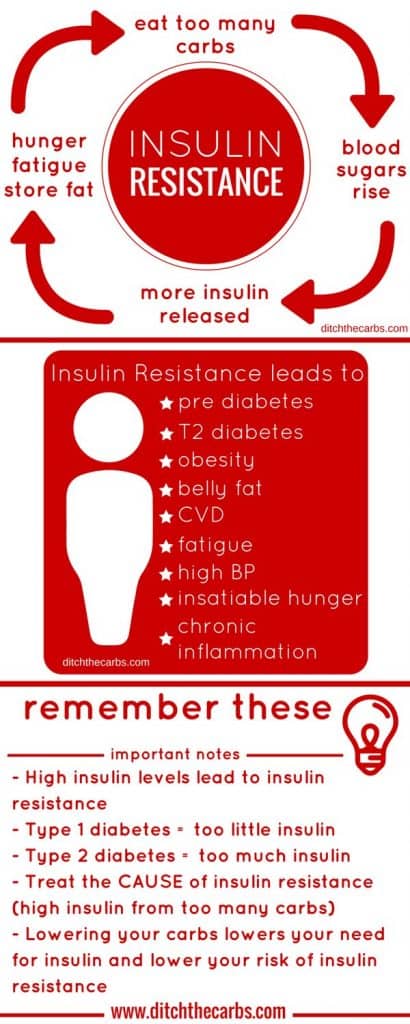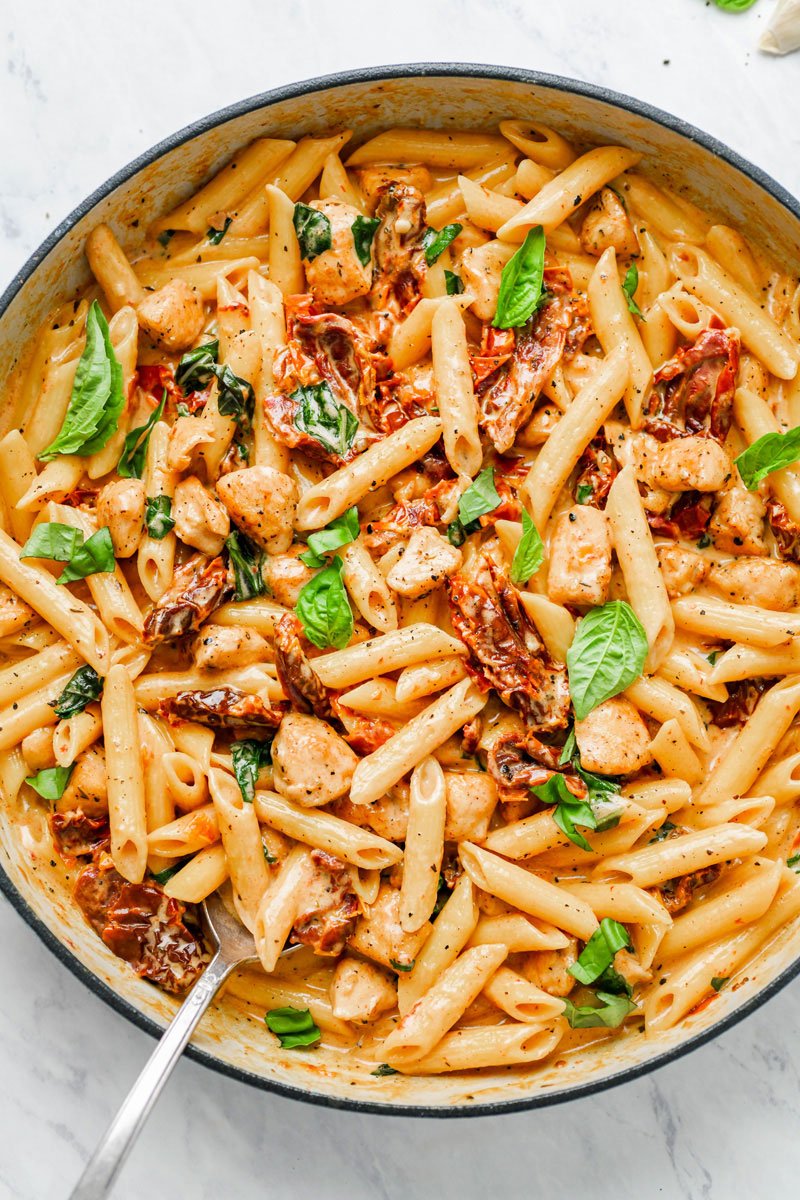💡 What Is Insulin Resistance (and which is the best diet)?
This guide will tell you everything you ever wondered about insulin resistance. Which is the best diet? Should you ignore the guidelines?
Have you heard of insulin resistance, but aren’t sure what it actually is? Are you gaining weight no matter what you try? Are you prediabetic or been diagnosed as a diabetic (T1 or T2)? Has your appetite always been out of control?
This fabulous TEDx talk by Dr. Sarah Hallberg and see how insulin resistance can be playing a part in all the above conditions.
Medical Disclaimer -Before embarking on any change in diet, lifestyle or activity, you may need to be under the supervision and care of your primary healthcare provider. This article should not be construed as medical advice, nor should it be substituted for medical advice from your healthcare provider. By continuing to read this article, you assume all responsibilities and risks for instituting lifestyle management.
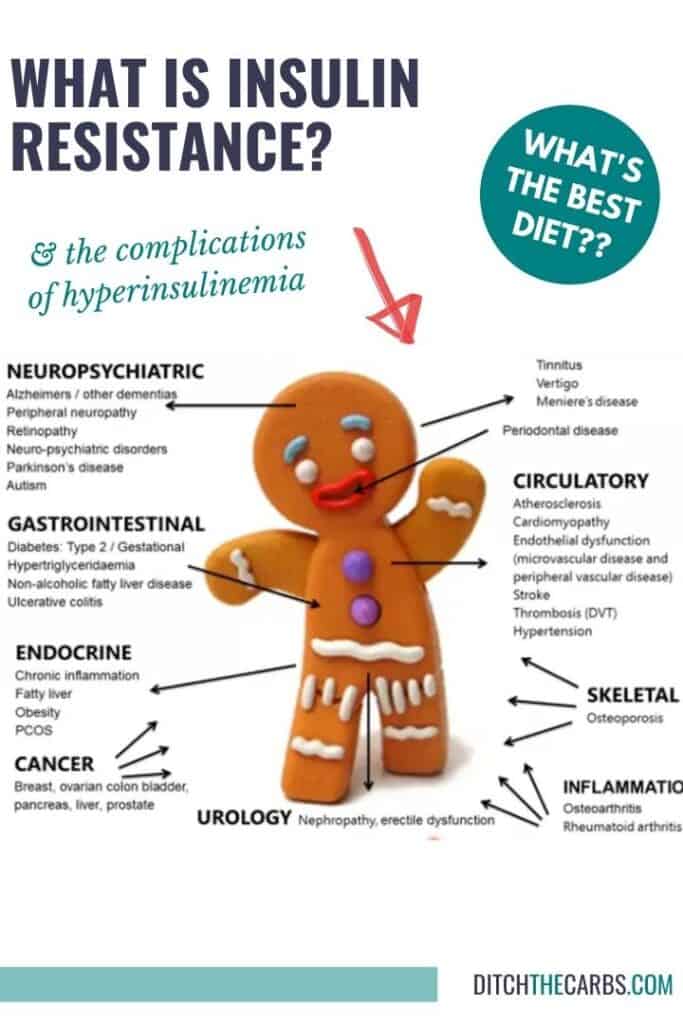
Jump to:
What is insulin?
Insulin is a hormone produced in the pancreas. Insulin helps regulate blood glucose (blood sugar) levels. It helps facilitate the movement of glucose out of the blood and into the cells.
When your blood sugars rise after a meal, snack, or drink, insulin is required to reduce the blood glucose in your body to the normal healthy range.
What is insulin resistance?
Insulin resistance is when the insulin receptors in your body become resistant to the effect of insulin and can’t utilise the glucose from your blood for energy.
What causes insulin resistance?
Most people who live on a high-carb diet generally have chronic raised blood sugars. These raised blood sugars require high levels of insulin to attempt to lower the blood sugar to within the normal range. The insulin receptors become resistant to the effect of the high levels of circulating insulin.
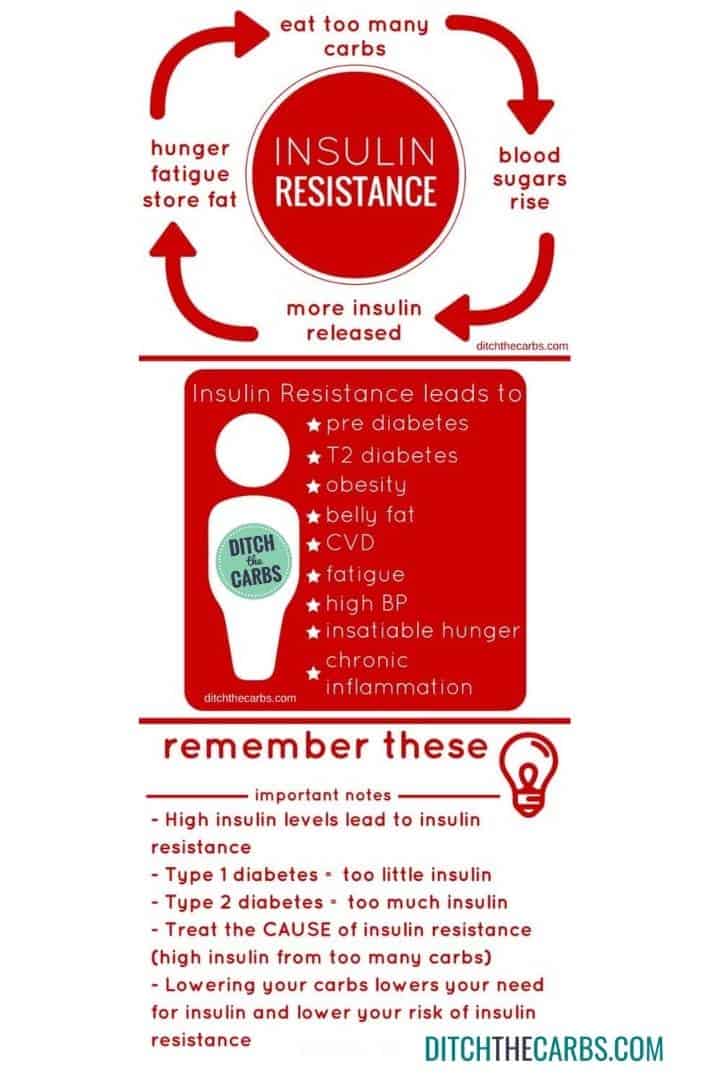
What is hyperinsulinemia?
If you are insulin resistant, chances are, your pancreas will have to make more insulin to lower blood sugars. This is called hyperinsulinemia.
Hyperinsulinemia affects nearly every area of your body.
If you require insulin to be injected, you may also suffer from insulin resistance. It’s the high circulating levels of insulin that starts this cascade.
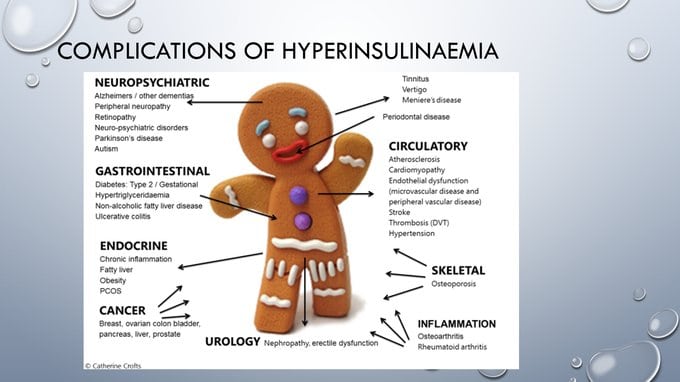
What is prediabetes?
Prediabetes is when your blood glucose is higher than the normal range but not high enough to be diagnosed as diabetic.
Insulin resistance is a risk factor for developing type two diabetes (T2D). Physicians may refer to this stage as prediabetes. You may be able to reverse it with diet and even avoid type two diabetes entirely.
Insulin resistance may be present years before a prediabetic diagnosis is made. You may continue to have normal blood glucose results but your body is increasingly requiring more insulin “behind the scenes” to bring your blood sugars under control.
In addition, insulin resistance may also occur with type one diabetics. If high levels of insulin injections are required, the insulin receptors may also become resistant, and hence more insulin is required to bring blood sugars to within the normal range.
What are the benefits of cutting carbs?
Everyone can benefit from cutting carbs. Especially processed junk carbs.
Reducing your carbs helps reduce your risk of developing T2 diabetes, obesity, reduced cardiovascular risk factors and more importantly, your inflammatory markers are also reduced.
ULTIMATE LOW-CARB BUNDLE: Want to start low-carb FAST? Learn how to start TODAY … even if you’re a complete beginner. This has everything you need to Ditch The Carbs … and live your best life! DON’T WAIT – BUY NOW.

Should diabetics cut carbs?
When you cut back on sugar and carbs, you will improve your blood sugar control. You will also improve your lipid profile, blood glucose stability, and a reduction in medication. Substantial weight loss can also be achieved.
So many diabetics have discovered low-carb and ketogenic nutrition has enabled them to achieve normal blood sugars. Dr. Bernstein and TypeOneGrit are great supporters and role models if you wish to learn more.
Why are the guidelines still recommending that those with diabetes (T1 or T2) to consume such vast quantities of carbohydrates when they are intolerant to them? The message for so long has been “eat whatever you want, then medicate for it”.
None of us should be eating so many carbs, especially processed carbs. Let alone those with T1 or T2 diabetes.
We may have the beginnings of insulin resistance for years, even decades, before we are classed as prediabetic or T2 diabetic.
Read more: How to eat for diabetes
Should you ignore the guidelines?
Having such high circulating levels of insulin is the problem. High insulin levels lead to insulin resistance. Our cells start to require more and more insulin to function. And it’s the resulting hyperinsulinemia that affects almost every area of the body.
So should you ignore the guidelines?
Dr Sarah Hallberg says yes.
“If you walk towards a wall and your belly hits it first, you’re probably insulin resistant”

What are the worst foods to eat on an insulin resistance diet?
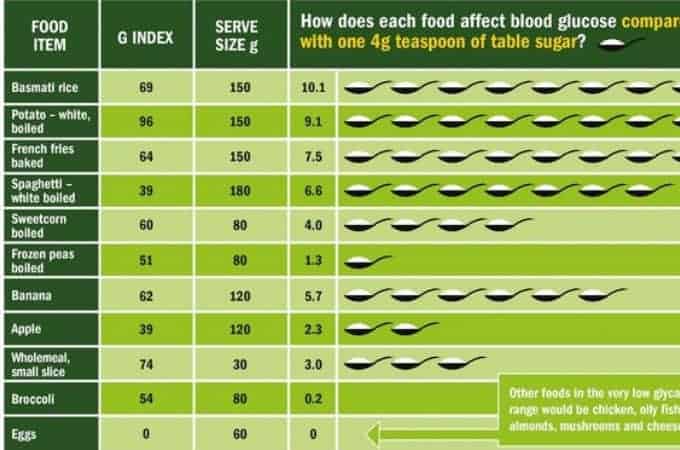
The worst foods to eat if you are insulin resistant are sugar and carbohydrates. All absorbable carbohydrates are turned into glucose in the body, as you can see from the graphic above.
It doesn’t matter if it is a wholegrain organic sandwich, wild rice, frozen peas or an apple. They all are converted into sugar.
Once you discover how everyday carbs affect blood sugars, you can begin to make better choices. Sometimes, it’s just a matter of simple swaps such as:
Read more: Top Low-Carb Swaps And Cheat Sheet
How many carbs can I eat on an insulin resistance diet?
There isn’t one set amount of carbs that you can eat because each person’s body is different and so is their response to sugar and insulin. You should talk to your health care professional about how to create a meal plan that is made for your body and your carb tolerance.
You must also be under the strict supervision of your health care practitioner who can monitor your progress and help adjust your medications accordingly.

What are the best diets for diabetes and weight loss?
This video explains some of the best diets for diabetes and weight loss. If you are struggling to lose weight, this video is worth a watch!
You may wish to start a low-carb diet or start a keto diet. But you must be under the supervision of your health care practitioner who can monitor and supervise your progress and medications.
Summary
Insulin is your fat storing hormone.
Remember that again, insulin is your fat-storing hormone. So whilst your blood sugars may remain in the healthy range, your body will become accustomed to the high levels of circulating insulin. Therefore, you will require more insulin to be produced over time to lower your blood glucose.
At this point, you will become insulin resistant. Your cells will no longer respond to insulin, so more must be produced. You may also have hyperinsulinemia.
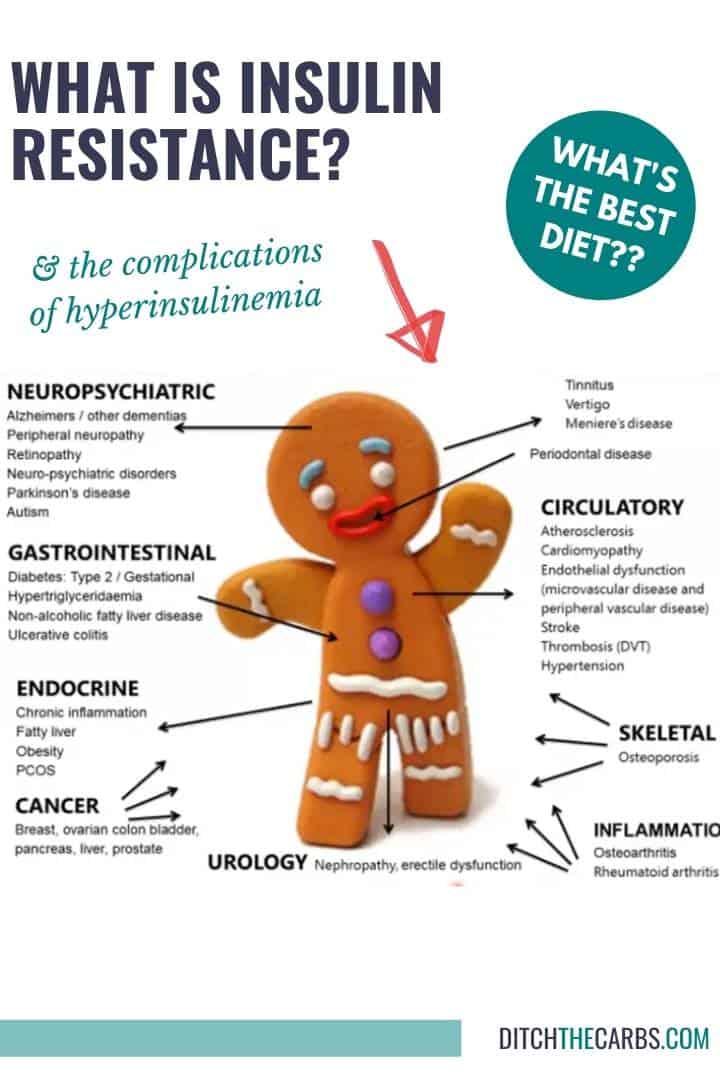
References and citations:
This article was originally published by ditchthecarbs.com. Read the original article here.

